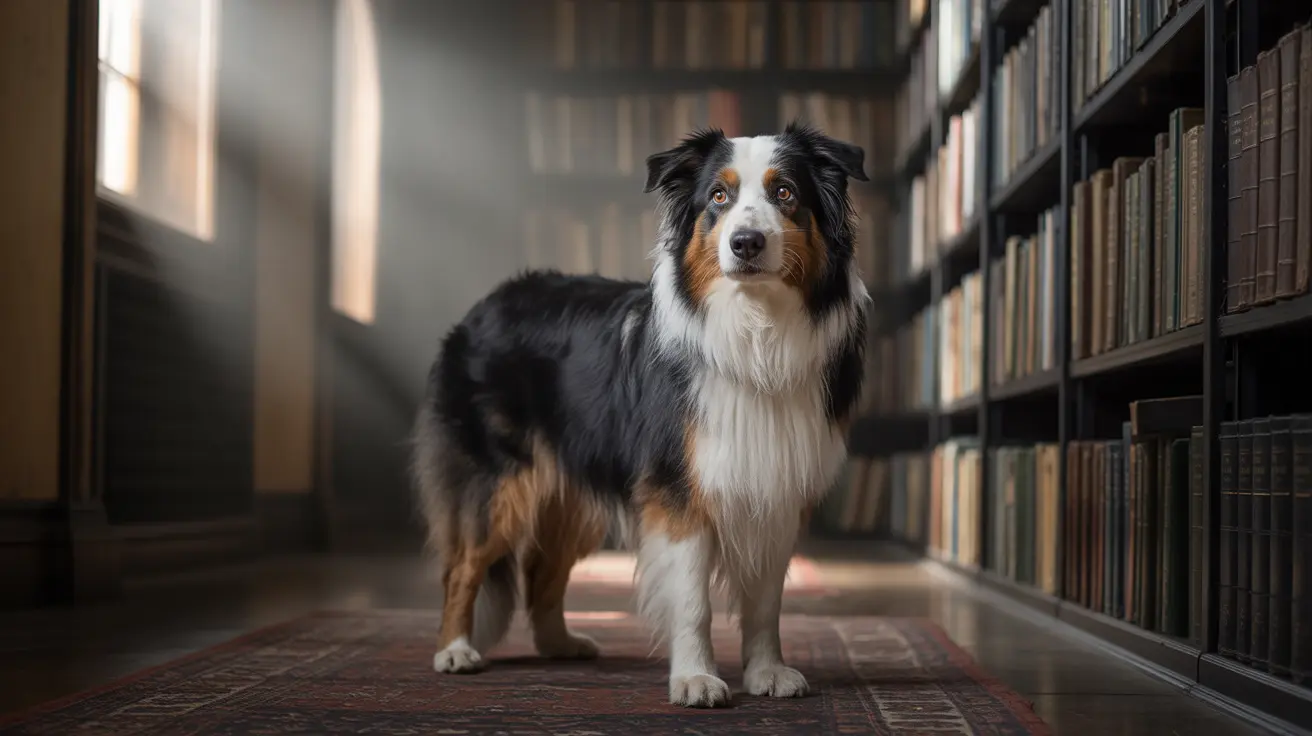Normal Causes of Pupil Dilation in Dogs
Dogs' pupils naturally dilate and constrict in response to various environmental and physiological factors. Understanding these normal responses can help you distinguish between routine dilation and potential health concerns.
Light Adaptation
In low-light conditions, your dog's pupils will naturally dilate to allow more light to enter the eye. This is a normal physiological response that helps improve vision in darker environments. When exposed to bright light, the pupils should quickly constrict.
Emotional States
Excitement, fear, or stress can trigger pupil dilation as part of the body's fight-or-flight response. This temporary dilation usually resolves once your dog calms down or the triggering stimulus is removed.
Medical Conditions Causing Dilated Pupils
Eye-Related Issues
Several eye conditions can cause persistent pupil dilation:
- Glaucoma (increased eye pressure)
- Progressive Retinal Atrophy (PRA)
- Retinal detachment
- Corneal ulcers
- Iris atrophy (especially in older dogs)
Neurological Causes
Neurological issues that may cause dilated pupils include:
- Head trauma or brain injury
- Brain tumors
- Seizures
- Nervous system disorders
- Horner's syndrome
Toxins and Medications
Various substances can affect pupil size in dogs:
- Certain medications (including eye drops)
- Toxic plants
- Chemical exposure
- Accidental ingestion of human medications
- Recreational drugs
When to Seek Immediate Veterinary Care
Contact your veterinarian immediately if you notice:
- Pupils that remain dilated in bright light
- One pupil larger than the other (anisocoria)
- Signs of vision problems
- Eye redness or discharge
- Pain or discomfort
- Additional concerning symptoms like lethargy or vomiting
Frequently Asked Questions
What are the common causes of dilated pupils in dogs, and when is it normal?
Dilated pupils are normal in low-light conditions, during excitement, or in response to stress. However, persistent dilation in bright light or accompanied by other symptoms may indicate a medical issue requiring attention.
How can I tell if my dog's dilated pupils indicate a serious eye or neurological problem?
Watch for persistent dilation, uneven pupil sizes, vision problems, eye pain, or additional symptoms like disorientation or behavioral changes. These signs warrant immediate veterinary evaluation.
What symptoms should prompt me to take my dog with dilated pupils to the veterinarian immediately?
Seek immediate veterinary care if you notice persistent dilation in bright light, uneven pupils, signs of pain, vision problems, eye redness, or if dilation is accompanied by other concerning symptoms like lethargy or vomiting.
Can certain medications or toxins cause pupil dilation in dogs, and what should I watch for?
Yes, various medications and toxins can cause pupil dilation. Watch for sudden changes in pupil size after medication administration or possible exposure to toxic substances, and contact your vet if you suspect poisoning.
How do age-related conditions like iris atrophy or progressive retinal atrophy affect my dog's pupils and vision?
Age-related conditions can cause permanent changes in pupil size and function. Iris atrophy typically causes irregular pupil shape, while PRA leads to progressive vision loss accompanied by dilated pupils. Regular veterinary check-ups can help monitor these conditions.
Conclusion
While dilated pupils in dogs can sometimes be normal, knowing when to be concerned and seek veterinary care is crucial for your pet's health. Regular monitoring of your dog's eyes and prompt attention to unusual changes can help prevent serious complications and ensure optimal eye health for your furry friend.






